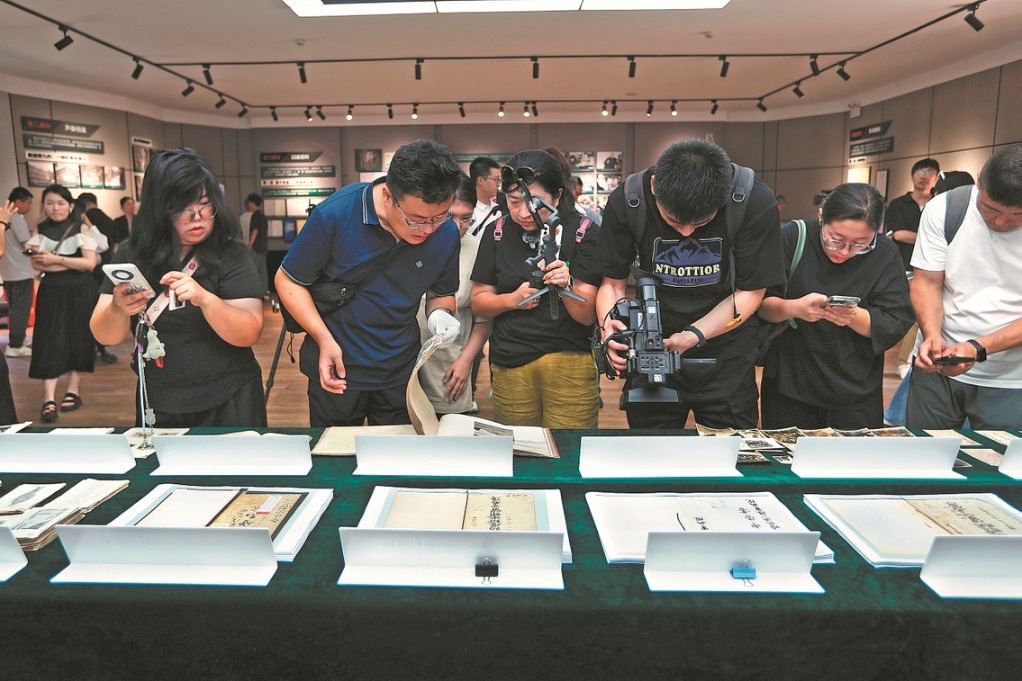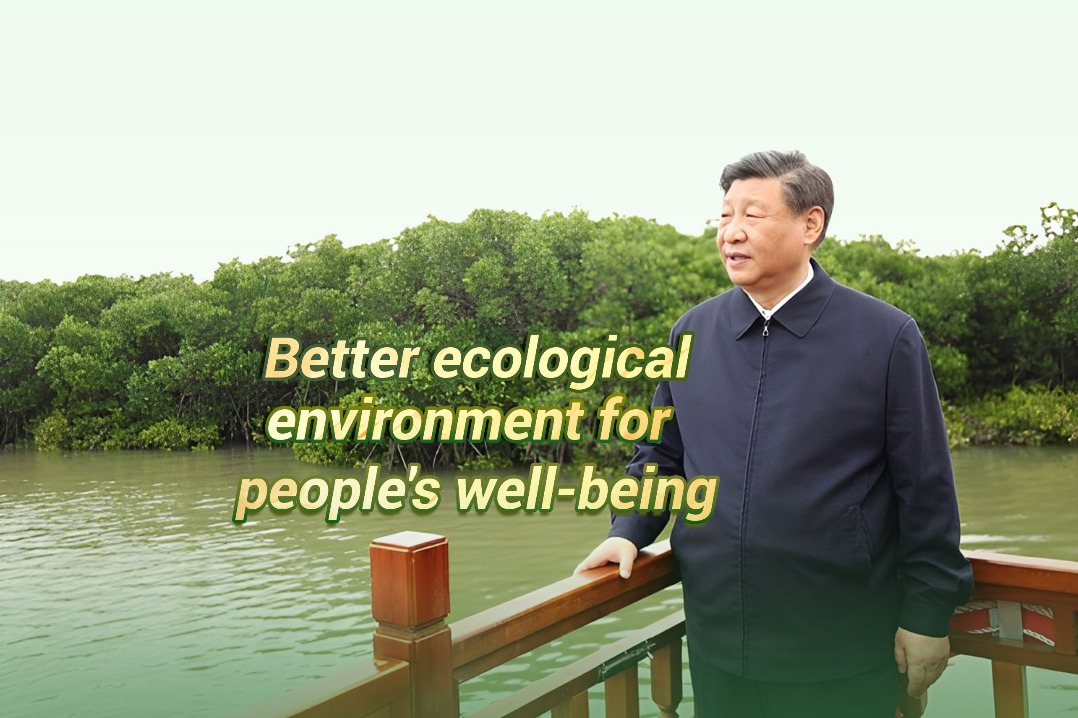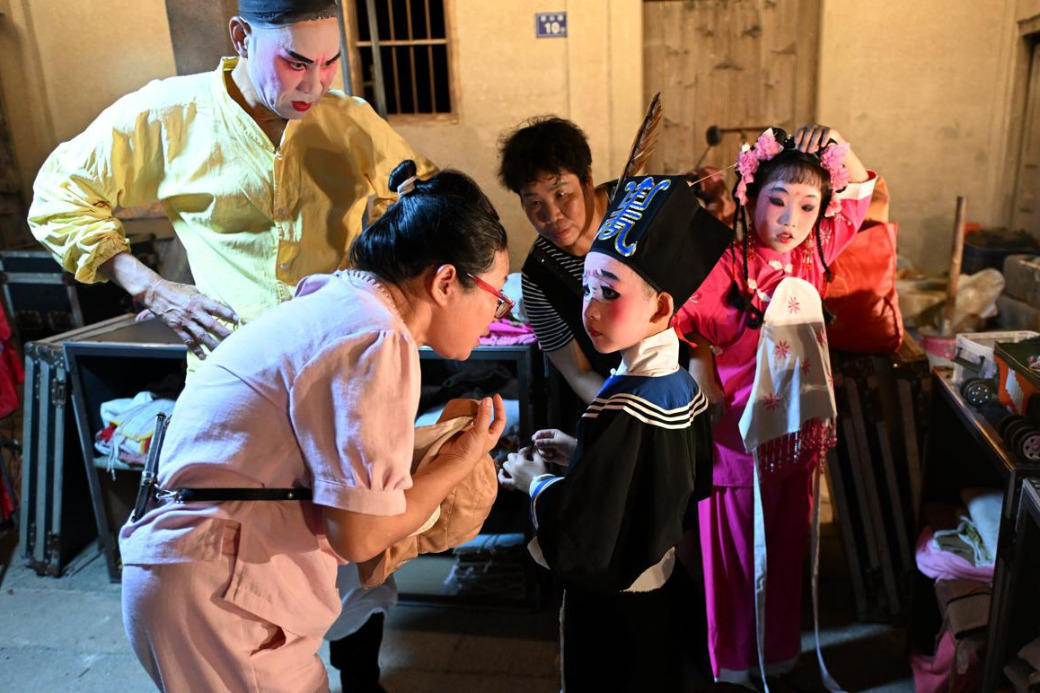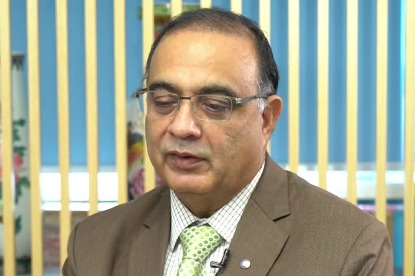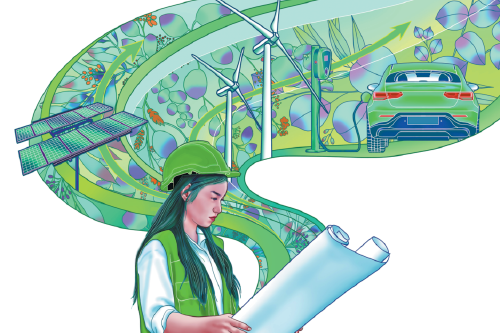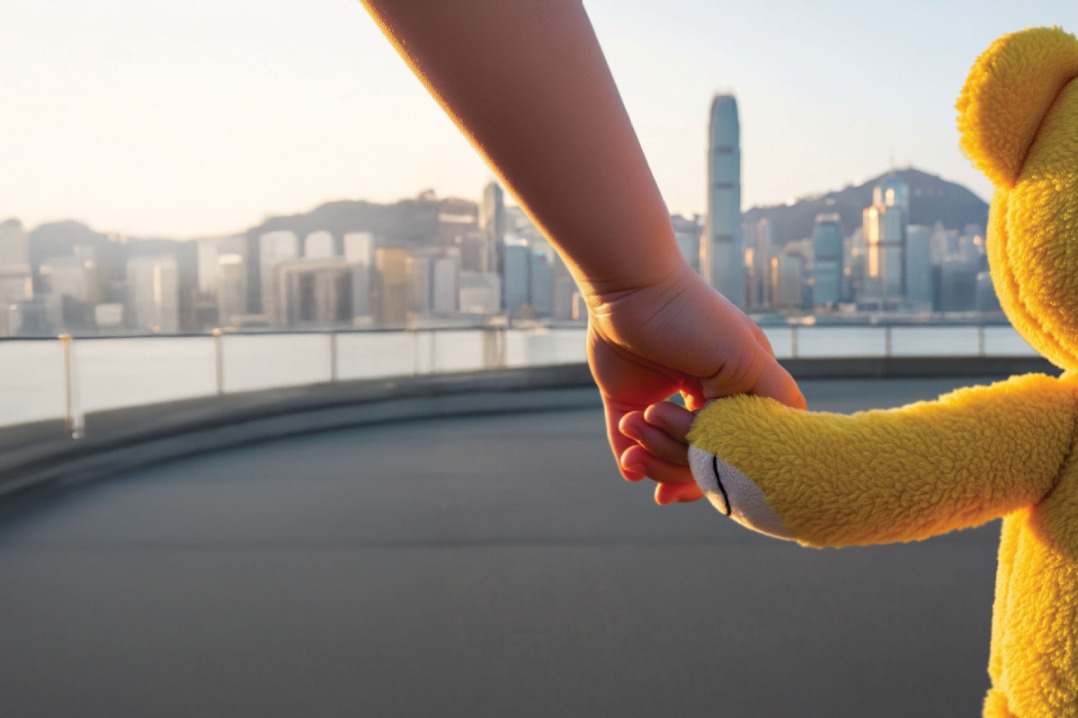When parental anxiety is sparked by summer break

The high temperatures this summer were unbearable — and so was the pressure on many parents. While students enjoy almost complete freedom during summer vacation, their parents and/or guardians are often worried to the core: Who's watching the kids? Are they becoming lazy? Will they fall behind academically? Are they glued to their smartphone/tablet screens?
In their anxiety, some parents eagerly await the reopening of schools or cram courses.
But after China implemented the "double reduction" policy in 2021, in order to ease students' burden by banning excessive homework and off-campus tutoring, the chances of cram courses' revival have largely disappeared. Schools are barred from holding formal classes or special tutorials during holidays, tutoring centers have been shut down, and paid private tutoring by schoolteachers is strictly forbidden. While the policy has been enforced, anxiety continues to plague parents.
The policy was designed with good intentions: to reduce the pressure of academic overload on students, and make families happier.
Some researchers, however, said the policy's impact has been far from uniform: while some families welcomed the move, allowing their children to relax or play some sports, some have doubled down on their children, fearing they would lose precious ground. After all, no parents want to see their children falling behind at the starting line.
In such a situation, what should parents do? Giving children total freedom is not the answer nor is constantly pressuring children to keep on making achievements. To deal with the situation, we need balance, wisdom, and a long-term vision.
To begin with, parents must understand the deeper reasons behind the "double reduction" policy, because it is not only about reducing homework, but also about reforming the education system, promoting holistic development, and improving the quality of teaching and after-school support. If parents understand the policy's goals, they can reduce their anxiety.
They also need to recognize the changing nature of the world their children are growing up in. Today's era is marked by rapid technological advancement — artificial intelligence, quantum computing, and tools like GPT are reshaping industries. In such a world, rote learning and doing repetitive drills are not only ineffective but also harmful. They stifle curiosity and could lead to learning fatigue and emotional distress. Parents must shift their focus from their children getting high grades to helping sharpen their problem-solving skills, and increase their scientific knowledge. And the summer break is the perfect time for children to explore society and broaden horizons.
At the same time, physical and emotional wellbeing should not be neglected. Studies have shown a worrying rise in issues such as myopia, obesity, poor posture, and anxiety among children. Reducing academic pressure must be accompanied by efforts to increase children's exposure to music, sports, art, and hands-on activities. Well-rounded development — moral, intellectual, physical, aesthetic and practical — is not a luxury, but a necessity for healthy growth.
Yet parenting is not easy. Without proper guidance, some parents may feel frustrated and some may retreat entirely, while others could try to offload their responsibilities on others. Since parenting is a special skill, would-be and new parents should seek elders' advice and guidance on how to bring up children. Parents who reflect on their behavior and seek guidance tend to feel more confident. And confidence is an antidote to anxiety.
Another crucial factor in parenting is the role of fathers. In many households, parenting duties are disproportionately shared by mothers. This "widowed parenting" practice leaves children without a strong male role model and mothers feeling overwhelmed. A father's steady presence, quiet authority and long-term influence help shape children's character, and build resilience in them. When both parents share the parenting duties, the family functions better and children benefit from a more balanced, secure upbringing.
So parents must look inward. Parents' high expectations from their children often stem from the unfulfilled dreams of their own. As a saying goes, some birds don't fly, but instead lay eggs in the nest and hope their offspring will excel in all departments. Children sense this pressure. What children need most is not perfection, but a role model. Parents who pursue their own dreams with purpose and integrity inspire in their children admiration and respect. This strengthens the parent-child bond and makes a family more united.
The author is a professor at Shanghai Academy of Educational Sciences.
The views don't necessarily represent those of China Daily.
If you have a specific expertise, or would like to share your thought about our stories, then send us your writings at opinion@chinadaily.com.cn, and comment@chinadaily.com.cn.
















